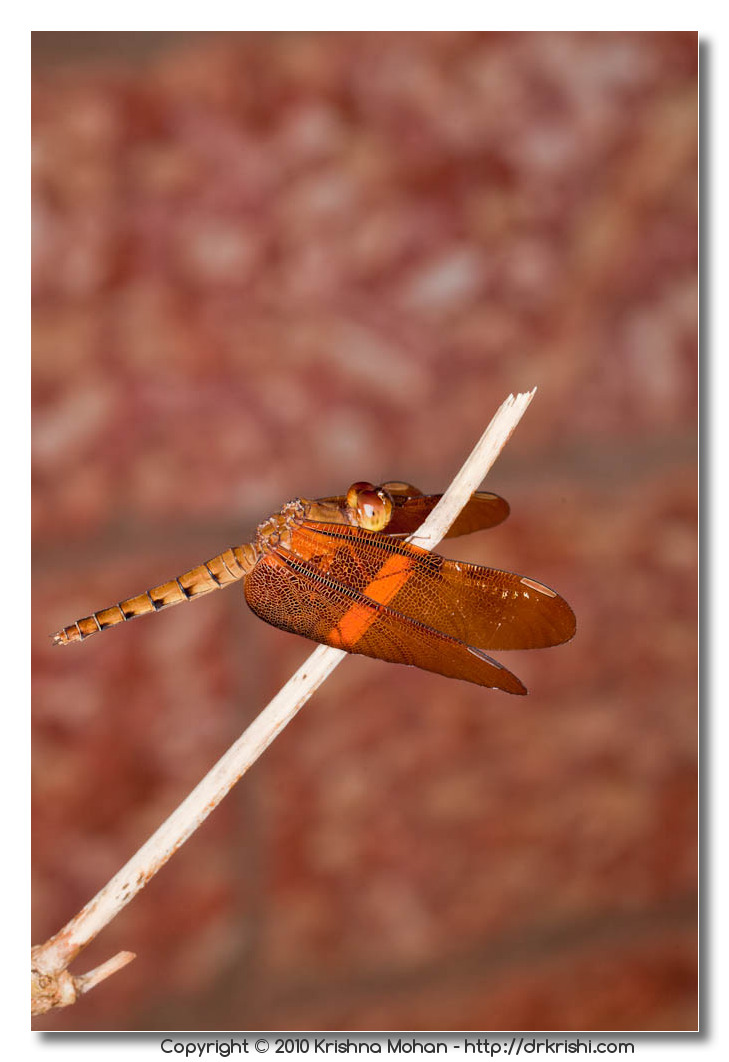
I found these female Fulvous Forest Skimmer (Neurothemis fulvia) dragonfly roosting on a dry branch in our kitchen garden. Two of these female dragonflies were sitting there continuously in the same position for 6 days without a break. It was raining heavily during that period and I could get only a short time to photograph these beauties. They flew off on the 6th days and not to be seen since then. The position they were sitting was so awkward. To take good photograph in such a corner was impossible without disturbing their roost. So I could not get any frontal view of them. What was unusual with these specimens were that they lacked irregular transparent areas which are so characteristic of this type of dragonfly species.
Fulvous Forest Skimmer (Neurothemis fulvia) is a medium sized rusty colored dragonfly with transparent wing tips. Male is reddish brown where as the female is paler brown in color.

Male has a reddish brown face with eyes which are dark reddish brown above, golden brown below. Thorax, abdomen and legs are reddish brown. Wings are dark reddish brown with an irregular triangular transparent area at the tip of the wing. The wing spots are dark reddish brown.
Many forms of females are found. Color of head, thorax and abdomen paler than males or rusty brown. Wings are clear amber yellow with a dark ray extending to the tip in fore wing. Many of them have a irregular triangular transparent area at the tip of the wing. As I mentioned earlier these two specimens did not have those irregular transparent areas.

It is a dragonfly of wet forests. Usually perches on fallen logs and shrubs. A large number of them can be found together in canopy gaps and forest edges. However, during the wet season, they move out of forested areas to non-forested bits.

It breeds in marshes associated with forest streams and rivers. They are found throughout the year. However, large number can be seen between May-September.



Beautiful shots doc!
How close were you to the Dragonfly when you took the second shot ?
Mohith,
I was at the minimum working distance for my 100mm f/2.8 L lens which is 5.9″ (146mm) so that I could get 1:1 magnification.
Regards
Krishna Mohan
Thats an amazingly close distance to go without scaring it! Unless you were already in the
position, sitting like a stone, before the DF came and sat on the perch. 🙂
Mohith,
It is definitely achievable for Dragonflies too. When they roost they are hesitant to fly on approach. You need to move slowly. Sudden movements are perceived as predator characteristics by insects. Best is hold camera to the face and move closer gradually clicking photographs all the time. If Insect shows agitation stop. Move again once it is relaxed. Even if it flies off it will come back to the same place if you are stationary.
Regards
Krishna Mohan
Thanks for the info doc, 🙂
Very helpful Doc